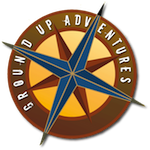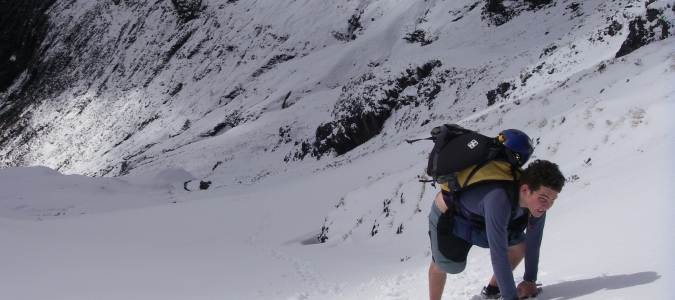Twitter @gupadventures | Facebook groundupadventures or RedRiverBoathouse | Instagram @boathouseonthered
Thoughts on youth
Ground UP adventures is reorganizing a bit - our focus as an organization is turing exclusively towards promoting and providing adventuring for youth. I'm pretty excited about the change because its a move towards something i really believe in. Here's a brief essay that gives a bit of insight into why i think its so important to get kids involved in (or at the very least give them the option to get involved in) genuine adventures. Also check out my 'files from the vault' #1 and #2 on the ENDracing website to get a taste of what kids are capable of. Read on for the essay!
There exists a sizable raft of evidence suggesting a very positive role for adventure based activities in dealing with at risk youth. But the benefits of genuine adventure experiences aren’t limited to the at-risk group. Youth of all backgrounds show increases in self-concept and self-esteem, help seeking behavior, increased mutual aid, pro-social behavior, trust behavior and more. Beyond these psychological characteristics, an (often lifelong) appreciation for health and wellness can result when kids re-connect with genuine adventure.
Here’s the way it typically works:
Kids start out as natural adventurers and often have genuine adventures during early years.
As they grow up in a risk-averse society, their ability to continue having these experiences diminishes as their physical capabilities increase.
By the time they reach middle adolescence (14-16), real adventure, for vast majority, is completely absent, and remains so for the rest of their lives.
It turns out that, for all appearances, we can live our lives with very minimal risk. But genuine adventure? Well that always does contain some element of risk (Adventure without risk is Disneyland—Doug Coupland). But here’s the kicker – the first statement of this paragraph – despite appearances – is utterly false. We convince ourselves of this fact so much so that it fades into the background. Risk is associated with wilderness, cold, heat, speed, rivers and oceans, ‘uncivilized things’. But risk is everywhere. Adventurers know this. They live it and breathe it. They learn how to manage risk – and these lessons can come out of the wilderness with them. These are lessons not about avoiding risk (which as I’ve mentioned is impossible), but minimizing consequences, rebounding from loss or injury, persevering, and even knowing when to quit (and yes, there is a time to quit – but we routinely do it way too early). Adventure teaches us how to embrace, adapt to, and thrive under uncertainty, and that perhaps is the most useful lesson each of us can learn.
Genuine adventure – an experience where the participant willingly challenges themselves against unknown elements, pursuing an unknown outcome – is among the most formative experiences available. Ground UP adventures aims to become the vehicle by which area youth are able to access genuine adventure. Here’s how we’re going to do it:
In 2012 we will host a Youth Adventure Camp for 12-16 eleven to fourteen year olds from the Grand Cities. The camp will entail four days of hands on activities including rock climbing, rappelling, canoeing, swimming, pack-rafting, mountain biking, trekking, camping, map and compass navigation, fire building, and ultra-light/leave no trace wilderness travel. The camp will take place on four consecutive days during the summer months, (most likely in early June) with time split between Grand Forks and Turtle River State Park. We will have an instructor/student ratio of 1:4. In an effort to make the camp accessible to kids of less economic means, we will be reaching out to area businesses for support of a scholarship fund – donations will be directly applied to camp tuition for individuals who demonstrate financial need. In future years, we hope to expand the program, bringing on more staff (as funding allows) to accommodate greater numbers of campers. In addition, we plan to add an ‘advanced’ camp for returning (and older) students where they are able to apply the skills they’ve learned and practiced in more remote settings, such as the areas surrounding Duluth, or up in the Boundary Waters Canoe Area Wilderness.


Add new comment